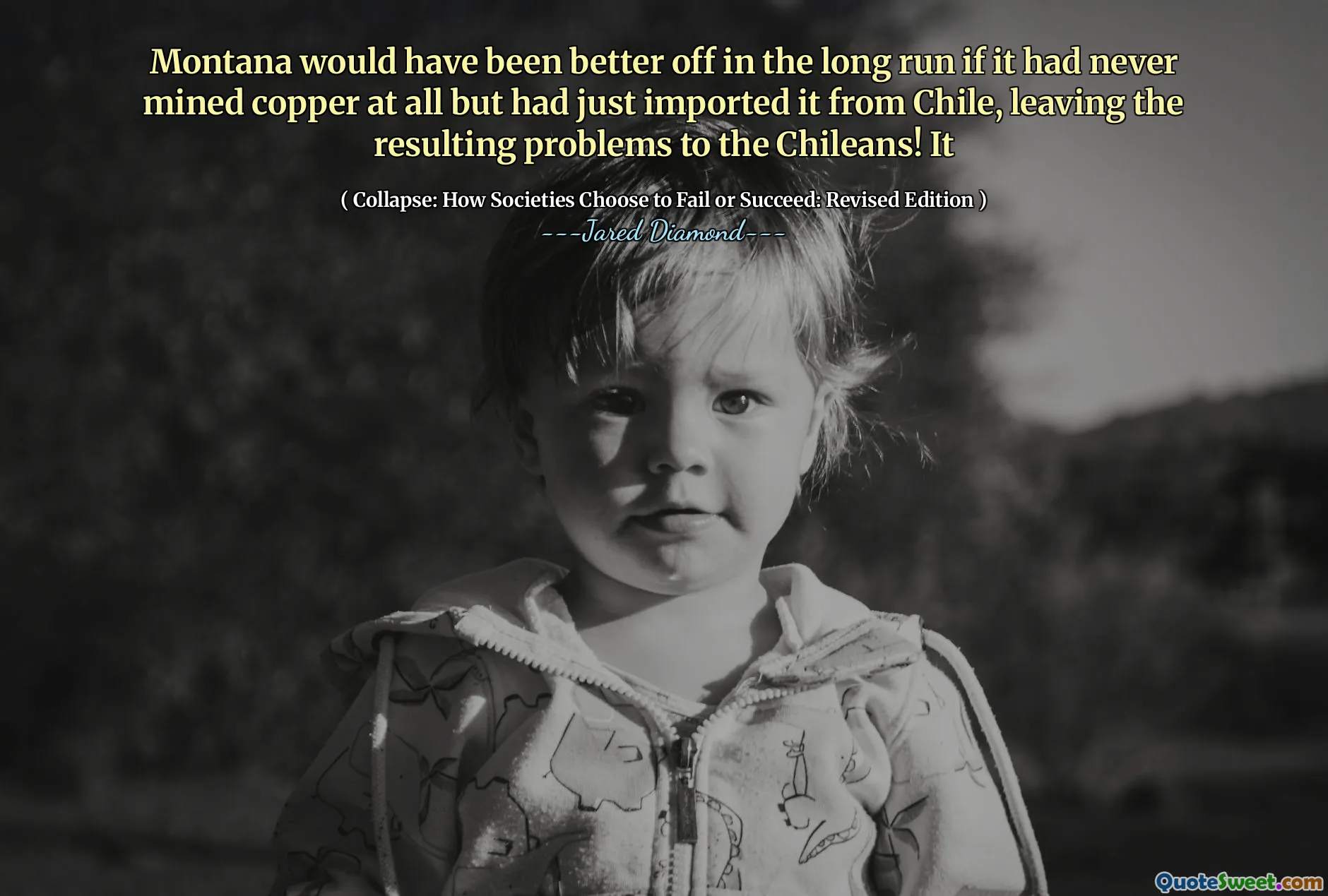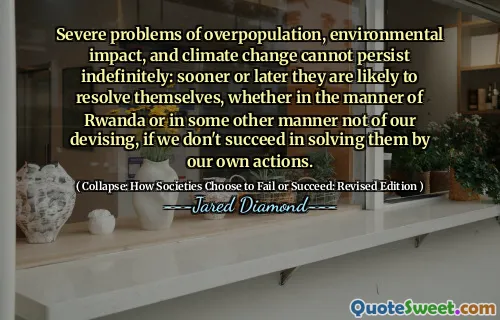
Montana would have been better off in the long run if it had never mined copper at all but had just imported it from Chile, leaving the resulting problems to the Chileans! It
This quote highlights the complexities and unintended consequences of resource extraction and economic decisions. It questions the long-term sustainability of relying heavily on resource extraction industries, like copper mining. By suggesting that Montana might have been better off avoiding local mining and importing processed materials, the quote touches upon issues such as environmental degradation, economic dependency, and the social costs associated with resource industries.
Mining often promises economic growth and job creation, but these benefits can be transient and come with significant drawbacks. Environmental disturbances like pollution, habitat destruction, and landscape alteration can persist long after the mines cease operations. Moreover, reliance on resource extraction can lead to economic vulnerabilities, especially if the resource becomes depleted or if global commodity prices fluctuate unfavorably. The idea of outsourcing the environmental and social burdens to another country—here, Chile—raises ethical questions about the distribution of impacts and advantages of such industries.
From a broader perspective, this quote underpins the importance of considering sustainability and systemic impacts in economic planning. It also reflects on the notion that necessitating local environmental degradation for short-term gains can be a self-defeating strategy. If societies and policymakers were to prioritize sustainable practices, perhaps they could avoid the pitfalls of resource booms and busts and foster long-term prosperity.
Overall, this quote encapsulates the idea that development decisions should be approached with caution and foresight, ensuring that the costs do not outweigh the benefits in ways that only become apparent after irreversible damage has been done. It echoes the common theme in Jared Diamond’s work about the importance of sustainable choices to ensure societal survival and well-being.







